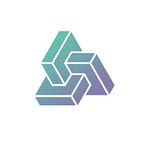UPDATE: Delphi has decided to use an Autobid contract as a next-generation token-distribution mechanism. The excerpts from this page which are no longer true or relevant have been removed or replaced, to minimize confusion.
Q: How many tokens are being distributed?
A: There will only ever be 30 million PHI tokens. We are auctioning 20 million of these to the community via the Autobid contract.
Q: How can I get some of those bounty rewards?
A: Read more about our new Bounty Program here, or simply help Delphi in some way and let us know via our bounty submission page, and we’ll make sure you’re fairly rewarded.
Q: Is there a soft cap?
A: No. Our team is primarily motivated by passion, and we intend to tackle The Oracle Problem regardless of the outcome of the token auction. Of course, having more resources at our disposal would help accelerate our progress and allow us to achieve our dreams more easily, but we do not need to raise any particular sum in order to work on Delphi. As others have observed: a “soft cap is set on top of fear.” We are not afraid, at all.
Q: Is there a hard cap?
A: Yes: at a price of 0.001 ETH per PHI, our hard cap works out to be 20k ETH. We chose this value as the “absolute maximum valuation we are willing to accept in the earliest stages of our project” and it should not be considered the figure we are expecting to raise. Other projects that are trying to take on The Oracle Problem are accepting (and receiving) higher initial valuations than this, but we feel that setting a higher cap than this might venture into “overly greedy” territory, and we would rather position ourselves to start small and grow from there.
Q: Will Delphi work on platforms other than Ethereum?
A: The Delphi Systems project has a highly expanded scope (which we’ll be discussing a lot more soon), and no longer has an Ethereum-only focus. Decentralized oracles are going to be a game-changer for many different platforms and applications, and while we definitely intend to concentrate our efforts in the first year or two heavily into development on Ethereum (which is, without a doubt, currently the most suitable platform for the applications we are currently building), we fully intend to expand beyond the borders of the Ethereum blockchain in the future.
Q: Can I see the code?
A: Sure, check out our GitHub page. We’ll continue pushing out updates to the code on a regular basis, so keep an eye on this page if you want to stay up-to-date with the latest developments on the technical side of things. We also plan to release more articles describing our code and architecture in more depth, for audiences who would rather read English than Solidity.
Q: Who is working on Delphi?
A: Tune in to our upcoming AMA on reddit this coming Monday (October 30) to learn more about our team and founders. To be clear, though, like we’ve said in the past: we want the lines between the team and the community to be as blurry as possible. If you feel that you are able to improve Delphi (whether that’s contributing code or peer review, setting up partnerships or relationships with other initiatives in the space, or just hanging out with us and talking things over whenever questions come up or decisions need to be made), we want you to do so, and we want to make sure that you are rewarded for your work. We have said this many times before, but the point bears repeating: one small team cannot hope to outcompete the entire world, so instead of trying to do so, we want to collaborate with the world. This is another subject that we will be discussing in more depth as things move forward, but the bottom line is: if you help Delphi Systems, then you’re part of the team, and we will do everything we can to make sure that you are treated as such and that you get what you need from the rest of us.
Q: How are you different from other oracle solutions on Ethereum?
A: This question is big enough that the answer deserves its own article. Stay tuned, and we’ll be getting to it soon!
